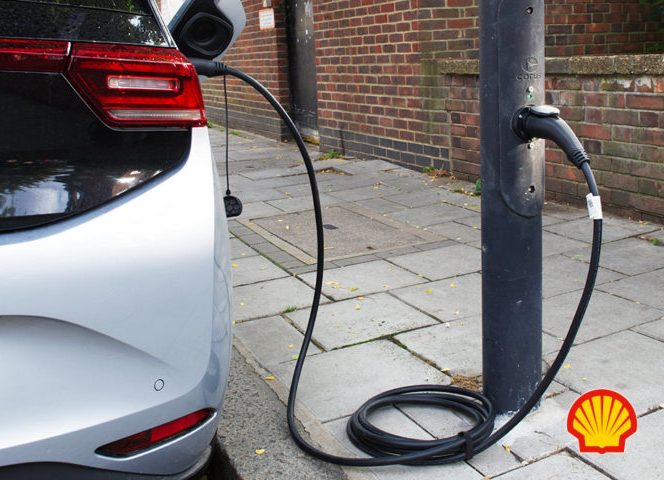
Shell says it aims to have 50,000 on-street EV charge posts installed across the UK by the end of 2025, through ubitricity, part of the energy provider’s group.
The move is part of a wider effort to bring more EV charging availability to millions of UK drivers without private parking and help local authorities to install charging networks as quickly as possible.

Discover B2B Marketing That Performs
Combine business intelligence and editorial excellence to reach engaged professionals across 36 leading media platforms.
Around 3,600 ubitricity chargers are already in place in the UK, using existing street infrastructure such as lamp posts and bollards. In order to drive take-up to reach the 50,000 figure, Shell will support local authorities with a financing offer to install more ubitricity on-street chargers in towns and cities across the UK at potentially zero cost.
The UK government’s Office for Zero Emission Vehicles (OZEV) currently meets 75% of the cost of installing on-street chargers through the On-Street Residential Charging Scheme (ORCS). For local authorities looking to install ubitricity charge posts, Shell is prepared to cover the remaining costs, subject to commercial terms.
More than 60% of households in English cities and urban areas do not have off-street parking; this rises to 68% for people living in social housing, according to recent figures.
“It’s vital to speed up the pace of EV charger installation across the UK and this aim and financing offer is designed to help achieve that,” said Shell UK Country chairman, David Bunch.
“Whether at home, at work or on-the-go, we want to give drivers across the UK accessible EV charging options, so more drivers can switch to electric.”
For her part, British Transport Minister, Rachel Maclean added: “Together with industry and local authorities, we can create cleaner, greener local communities; providing EV chargepoints for people without off-street parking across the country.
“As more and more people make the switch to electric, this is a great example of how private investment is being used alongside government support to ensure our EV infrastructure is fit for the future. This is crucial as we build back greener and accelerate towards COP26.”
The UK Committee for Climate Change recently recommended Britain needs 150,000 public charge points operating across the UK by 2025. Shell’s goal, which is a third of that total, sits alongside the roll-out of Shell-owned charge points at forecourts, supermarkets, businesses and homes.
Globally, Shell wants to grow its electric vehicle network from more than 60,000 charge points today to around 500,000 by 2025. This is part of its broader target to be a net-zero emissions energy business by 2050.
Founded in Berlin, ubitricity operates in a number of European countries and has the largest public EV charging network in the UK, with more than 3,600 charge points (currently 14% market share).
Shell acquired ubitricity in February, 2021.
https://www.shell.co.uk/media/2021-media-releases/shell-aims-to-install-ubitricity-on-street-ev-charge-posts-acros.html




